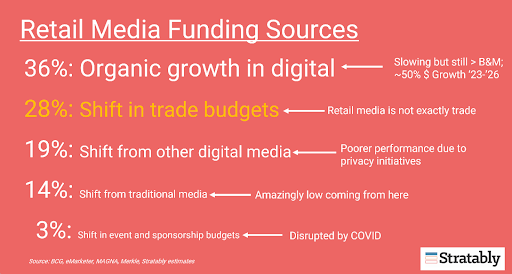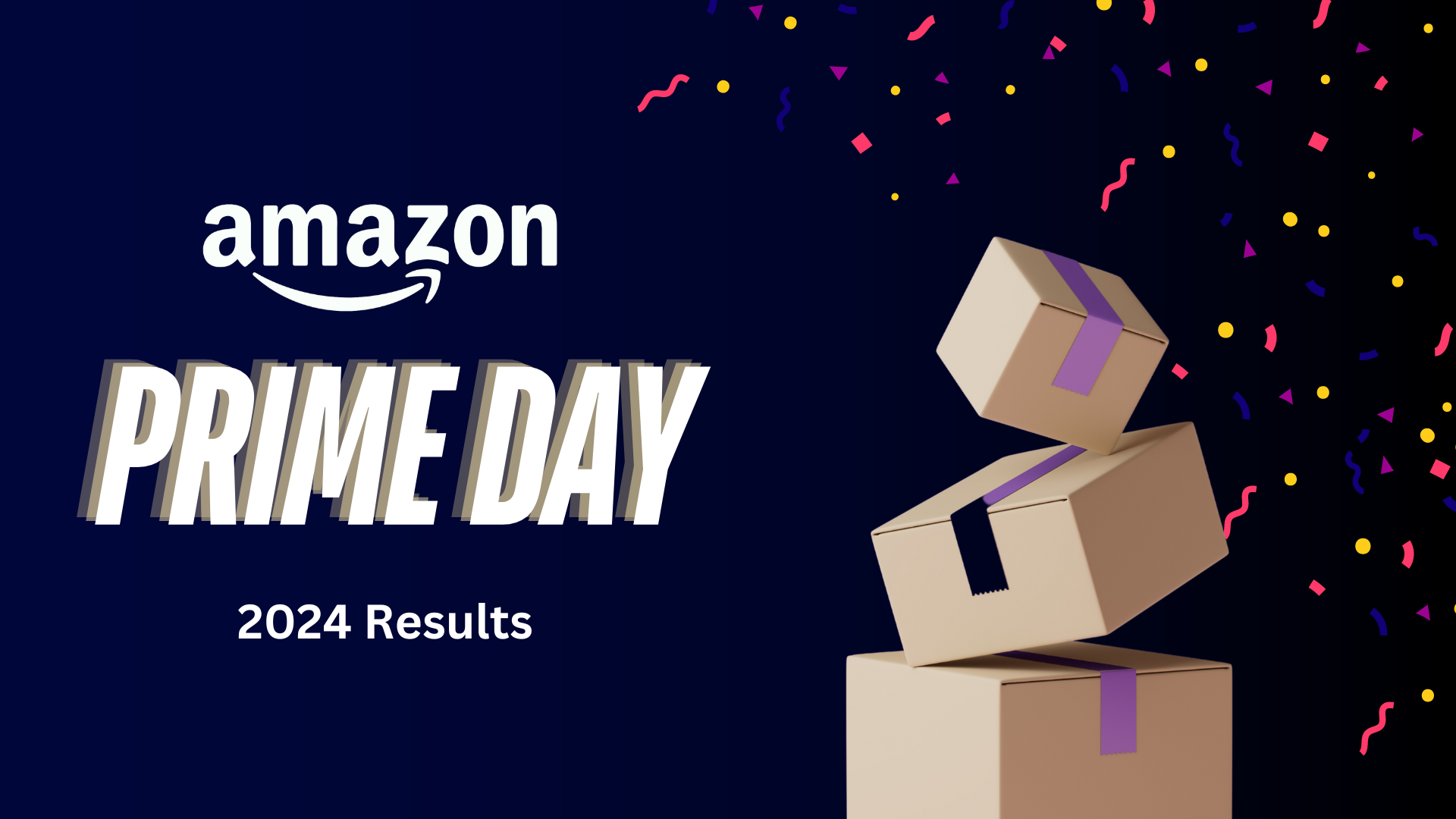This is a summary of an interview from the Ecommerce Braintrust podcast.
Kiri Masters, Acadia’s head of retail strategy, speaks with Ben Galvin, Vice President of Sales, National Accounts at Flying Embers. Prior to Flying Embers, Ben was a Senior Director, Omnichannel Retail Sales & Category Leadership at Constellation Brands, he held National Accounts roles at Anheuser Busch InBev and Founders Brewing Company.
Kiri and Ben’s conversation revolves around the changing world of retail, the importance of digital skills and omnichannel strategies for everyone involved in retail, and the structure of ecommerce business within brands.
Ben also shares his journey from traditional sales to mastering digital skills in his role the crucial role of digital in modern-day retail, and how today’s leaders and doers can influence and educate their own organizations from within.
This interview has been edited for clarity.
How did you get into this career?
I’ve worked in national accounts at Anheuser Busch for 10 years, handling major accounts like Safeway and Circle K, and then with Founders Brewing Company. So I had a strong sales background in dealing with national, regional, and strategic accounts. However, digital has never been a big part of my daily work. That changed when I joined Constellation Brands. I realized that my sales skills are not only crucial in managing national accounts, but also in understanding how consumers shop.
It's interesting to see how today's digitally native consumers are different from the “digital immigrants” we were a decade ago when it comes to buying alcoholic beverages at the age of 21.
Over the past five and a half years, I've been more focused on omni-channel marketing, and I've come to appreciate the importance of everyone having a grasp on digital in their careers and everyday work. Regardless of our backgrounds, understanding digital is a key component and skill that we need to acquire, as both consumers and retailers expect us to be more omni-channel. So, even though my expertise lies in sales, I'm committed to upskilling and educating myself in the digital landscape, as that is where the industry is heading.
What have you found to be the most impactful ways to stay educated, and skill-up in that relatively short part of your career?
The world of retail has drastically changed over the past few years, making it difficult for any book to stay relevant. That's why I keep myself up to date by having conversations with industry experts, listening to podcasts, and reading articles about retail trends. I also make a point to talk to major retailers like Walmart, Amazon, and Kroger to understand their perspectives on digital and omnichannel retail. Additionally, I spend time exploring online sales platforms to see how products are presented to consumers. It's crucial to not only understand how retail works, but also to talk to others and gather different viewpoints on the digital space. This knowledge isn't limited to just grocery retail - even when shopping for alcohol, I find that exploring websites like Home Depot and Best Buy can provide valuable insights into how digital influences our shopping habits. Embracing digital sales is a crucial aspect of succeeding in the world of omni-channel retail.
Lets talk about the various ways larger brands are typically organized from a sales, marketing, or ecommerce standpoint.
In the world of non-alcoholic beverages, the three-tier ecommerce system is similar to the wholesale business. It is influenced by strict alcohol laws and regulations. Within this system, we have two main types of ecommerce: business-to-business (B2B) and direct-to-consumer (DTC). Due to the impact of Covid-19, many organizations have established an ecommerce center of excellence to support retailer adoption of consumer-facing solutions and to navigate emerging distributor and B2B platforms. These centers often include sales, marketing, and digital shelf departments, all working together to drive growth and innovation.
While some organizations integrate their ecommerce functions within existing sales and marketing divisions, many maintain a standalone center of excellence. This is because subject matter expertise and thought leadership are crucial for incubation and collaboration with retail and distributor partners. Additionally, organizations are investing in National Account Managers (NAMs) with ecommerce expertise to support major retailers like Walmart and Kroger, who now have a digital presence alongside their physical stores.
For example, a Walmart NAM would collaborate with the Omni Channel NAM to implement in-store programs, while also partnering with the walmart.com team to ensure online content and digital shelf optimization. Lastly, the direct-to-consumer side of the business, primarily focused on wine but also involving spirits, usually operates independently within the organizational hierarchy.
Overall, the beverage alcohol industry is adapting to the evolving ecommerce landscape, utilizing dedicated teams and expertise to meet the changing needs of consumers and partners in the digital space.
Is there any one model that is best suited for an omni future?
If a brand allocates media dollars from Brand budgets, it's common to attach an ROI or ROAS target to this investment. However, when budget comes from a trade budget or the sales team, their focus is on sales velocity and the importance of ROAS. At Constellation and other organizations, we have faced challenges with these traditional structures. It's important to recognize that this point of friction isn't necessarily a bad thing. Instead, it's about understanding the goal before allocating the funds. Are we aiming for a ROAS or ROI? This decision can potentially hinder our ability to maximize sales. On the other hand, if the funds are coming from a trade budget, the focus shifts to sales velocity and metrics like IRI or depletion. This can create some tension in terms of budgetary components.
After handling the budget, it's crucial to consider how the sales organization will manage it. Are they willing and able to be coached on handling and deploying the budget themselves? Alternatively, maybe an ecommerce team would be better suited for this task. This decision will vary for each organization. In my opinion, it's always more beneficial to upskill and empower the individuals in charge of these accounts so they have a comprehensive understanding of how the total budget is being spent, including retail media and trade marketing. This difference in opinions on how to measure success often arises due to the challenges in the origin of funds.
It's essential to find a balance and ensure that the chosen approach aligns with the organization's goals and priorities. By addressing these factors, we can effectively manage budgets and achieve optimal results.

How are the new breed of online retailers/marketplaces/ organized and what do they expect from brands that might be different to a typical sales org?
This “New breed” can be looked at differently. Tied House Laws say that brands can’t pay a retailer for any type of advertising. Instacart, Drizly, and Grubhub Don’t have liquor licenses for this reason. Because those marketplaces have a lot of power, while other direct RMNs cannot take bev-alc media dollars.
One important thing to note is that chains, both large and small, are increasingly prioritizing omnichannel marketing to retain consumers. This holds true whether you're a smaller regional chain like St Of Brothers in Southern California or a major retailer like Kroger. The beverage alcohol industry in particular is constantly pushing the boundaries with their brands. However, it's crucial to understand that the landscape of online retailers and marketplaces is unique in this industry. Due to Tidehouse laws, we are prohibited from paying retailers, who hold liquor licenses, for advertising or other promotional activities. Interestingly, the alcohol industry is the only industry to have multiple amendments in the US Constitution.
Looking ahead, in about a decade's time, we will commemorate a century since the repeal of prohibition. This means that platforms like Instacart, Uber, Drizly, and Grubhub, which do not have liquor licenses, have become the preferred choice for alcohol brands. This is because these online marketplaces are similar to travel industry aggregators like Kayak, offering a range of retailers without revenue sharing. On the other hand, big retailers like Walmart and Amazon still play a significant role, but their retail media networks have limitations that prevent us from participating fully in advertising on their websites. Nonetheless, we have leveraged their data to inform our strategies.
The alcohol industry has realized the importance of organizing around a digital-first approach, following the shift of consumers online. Whether it is through marketplaces or retailers, brands want to ensure that their commercial efforts are effective. This new breed of online retailers presents a unique blend of media dollars and trade dollars and requires a different approach when it comes to spending within the retail world and these party marketplaces.
In your personal opinion, is there any one model that is best suited for an omni future?
In the beverage alcohol industry, it is crucial to have an enablement team with subject matter experts. This is especially important as retailers are scaling up their digital presence, particularly in categories like dairy, bread, produce, and alcohol. The COVID-19 pandemic has accelerated this digital shift, bringing the future of the alcohol industry forward by 7 to 10 years.
However, despite this growth, online sales still only make up around 4% of total alcohol sales in the US, amounting to about $3 billion. This is significantly smaller than in-store sales. Therefore, it is essential to have an enablement team or subject matter expert group that can educate and empower the entire organization in order to capitalize on the potential of online alcohol sales.
Being in the early stages of this digital transformation offers great opportunities for individuals looking to advance their careers in this field. By having a dedicated enablement team, individuals can learn and grow, rather than having the digital aspect integrated into the organization without clear guidance or resources.
So, who is accountable for results in this model? The accountability falls on the divisions within the enablement team, specifically those responsible for sales, marketing, digital shelf optimization, and other related areas. For example, in the emerging field of retail media, where brands can utilize marketing tactics within retail environments, traditional marketing and media professionals may struggle to make sense of the sales data and metrics provided by platforms like Instacart.
To ensure accountability and drive overall growth, it is crucial to have an ecommerce enablement organization that understands both the marketing and sales aspects of the business. This team can measure, monitor, and communicate the impact of their efforts to the wider organization, helping everyone understand the importance of their work. Ultimately, the accountability rests with the subject matter experts who can effectively navigate this evolving landscape.
What are some of the challenges with this model and things brands should consider if they will be adopting it?
In the beverage alcohol industry, having an enablement team that specializes in the subject matter is crucial. Digital transformation is occurring rapidly, particularly in perimeter categories like dairy, bread, produce, and alcohol. The impact of COVID-19 has accelerated this transformation by 7 to 10 years, especially for the alcohol industry. However, online sales still only account for about 4% of total alcohol sales in the US, amounting to approximately $3 billion. This falls behind the sales in physical stores.
That's where the enablement team, or the subject matter expert group, comes in. They play a vital role in educating and empowering the entire organization. Being in the early stages of this digital shift creates opportunities for individuals to learn and grow both professionally and personally. Without a dedicated team, it becomes challenging to navigate through questions or seize opportunities that arise in this evolving industry.
Who is accountable for the outcomes in this model? Well, the accountability falls on the divisions within the enablement team, such as sales, marketing, and digital shelf management. These individuals are responsible for driving growth, monitoring results, and communicating them effectively throughout the organization. Take the example of retail media in the beverage alcohol space. With the emergence of new brand tactics, it's important to have experts who can understand the data received from retail sales and effectively utilize it for marketing purposes.
An ecommerce enablement organization provides the necessary accountability and expertise for the entire company. By measuring, monitoring, and driving growth, they ensure the success of the organization as a whole. They also communicate the importance of their work to the rest of the organization. Ultimately, subject matter experts play a crucial role in fostering understanding and accountability in this evolving industry.
And what about KPIs and metrics for success?
When it comes to achieving our goals, it's important to have the right KPIs and metrics in place. These should align with the objectives of our company, brand, or product line. It's also crucial for each team to have their own goals and KPIs that support customer acquisition efforts.
Quantitative and qualitative measures are both essential. Just a few years ago, running e-commerce sales through IRI or Nielsen wasn't possible. However, they have made significant progress since then, allowing us to gain a better understanding of the market landscape.
In the alcohol industry, where we can't obtain data directly from Amazon or Walmart, having measurable KPIs is even more critical. We rely on these data providers to sell us the information we need. Additionally, the separation between online and in-store data has been somewhat unreliable in recent years, which further complicates our access to insights.
Nevertheless, we can leverage the components of their advertising services and the data they provide to enhance our media platforms. This is done through shared services or strategic partnerships.
So in this model, does the Center Of Excellence interact with agencies and other partners?
I believe it is crucial to understand that the success of a company, regardless of its size, depends on the individuals and their skills. In the context of e-commerce, having a team dedicated to enabling online sales and marketing is essential. This team, which may include a marketing specialist, plays a crucial role in engaging with third-party marketplaces and representing the entire company.
Let's take Instacart as an example. If you were to hand over the management of a partnership with Instacart to various departments, there would be multiple people involved, each trying to prioritize their respective accounts. To avoid such fragmentation, it is vital to centralize decision-making on behalf of the company. This approach helps create a sense of unity and consistency when dealing with Instacart and ensures that your brand can grow effectively.
Furthermore, I believe that marketplaces like Instacart recognize the importance of having a dedicated representative for all brands and accounts. This way, when participating in retail media programs specifically tailored for the alcoholic beverage industry, every retailer has equal opportunities. There is no preferential treatment based on location or specific retailers. It is crucial to establish a center of excellence that can oversee these operations and ensure a fair and consistent approach across all states and retailers, unless they choose to opt out.
When it comes to Amazon, which holds liquor licenses, it should be treated the same way as other major retailers like Walmart or Kroger. While we may not be able to participate fully in Amazon ads or Roundel with Target, it is important to have a dedicated sales team that works closely with Amazon. They can handle sales, new product launches, and collaborate on various marketing activities. Additionally, having a marketing liaison within the team can provide assistance with digital content and other initiatives on Amazon, considering the high frequency of traffic and research conducted on the platform.
Even if customers may physically visit a grocery store like Publix in Southern Florida, they are likely to start their product search on Amazon. This highlights the significance of optimizing our presence on Amazon as much as possible.
It is essential to strategically grow our entire portfolio across both marketplaces and digital-first retailers. However, we must always ensure that we comply with the relevant laws and regulations, especially those related to liquor licensing. This is why you won't find any alcohol advertisements on Amazon's Thursday night football broadcasts.
Putting actual structure/hierarchy aside, what can ambitious ecomm leaders/doers do to actually break down siloes and get things done? Let’s talk about practical things you have seen work in your past roles.
Storytelling is the secret weapon. Being able to engage and relate to your peers is essential. Think about how your digital perspective can complement their daily tasks and workflows. Remember, everyone can contribute to digital success if they recognize and develop the necessary skills.
To create a seamless consumer experience, you need to have empathy. This includes integrating and planning with internal teams, forecasting future trends, and investing in employee development. Building these relationships takes time and effort, but it's crucial for organizational growth.
In the ever-evolving landscape of eComm, it's important to embed digital thinking into all areas of your business. Whether it's trade marketing, media, sales, or even finance and forecasting, aligning these functions will streamline your operations. Start by focusing on the in-store experience – it's where your digital presence originates. Ensuring inventory availability and product visibility in-store will directly impact your online sales.
Remember, omni channel success hinges on delivering a top-notch consumer experience. That means maintaining consistency across all touchpoints. As an eComm leader, it's vital to appreciate the power of storytelling, embrace empathy, and prioritize the in-store experience. By leveraging these principles, you'll strengthen your relationships with both consumers and industry partners, driving long-term success.
Thanks to Ben Galvin for sharing his point of view on the Ecommerce Braintrust podcast. You can connect with Ben on LinkedIn here.

